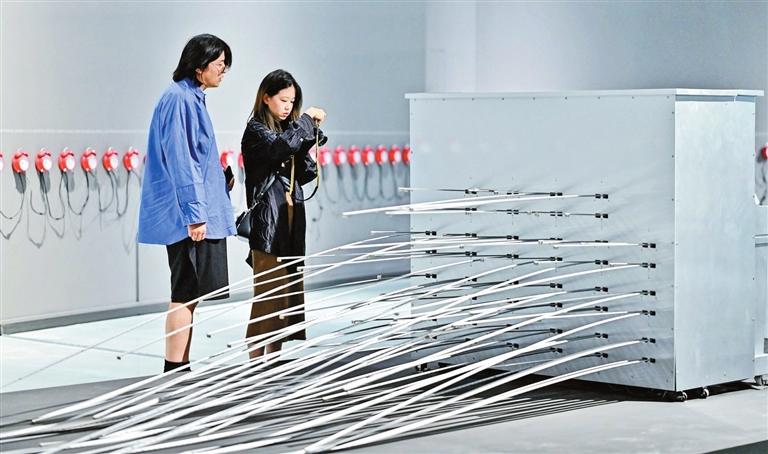
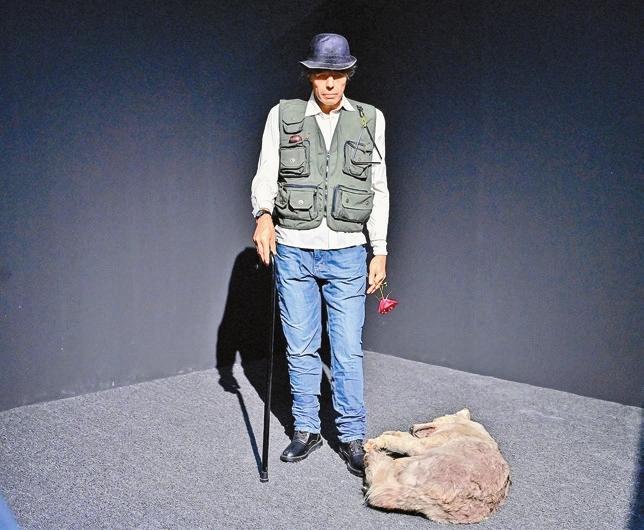
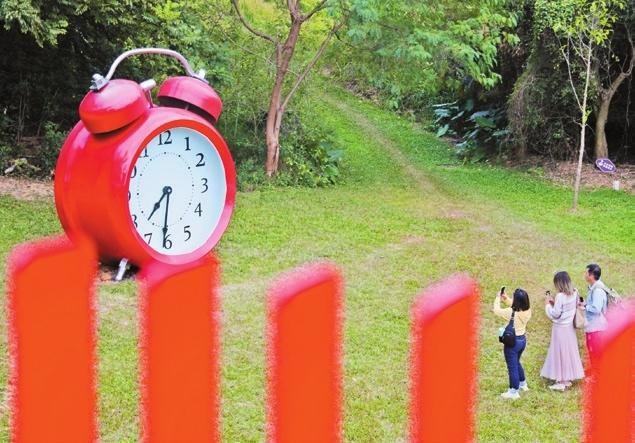
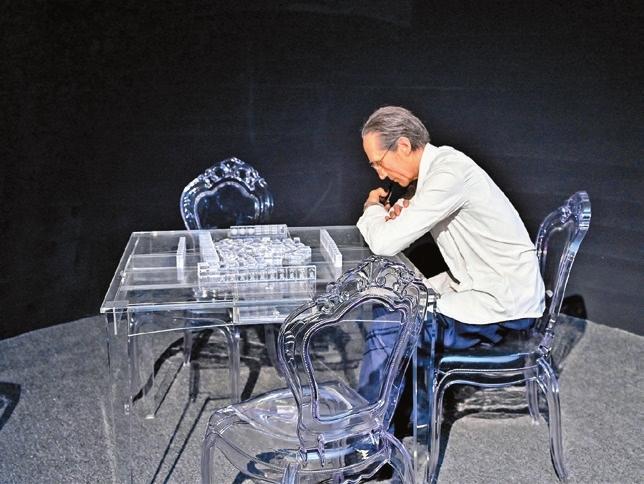
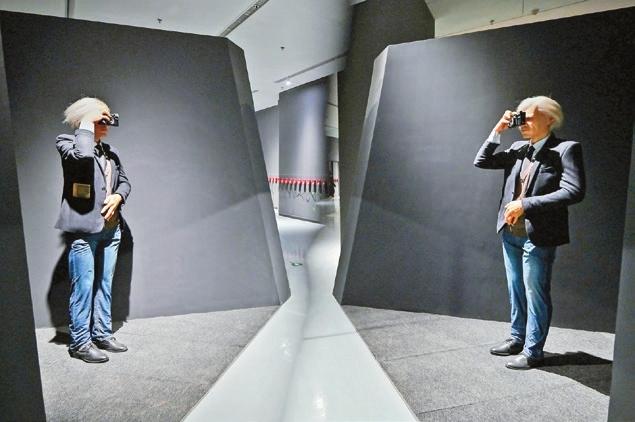
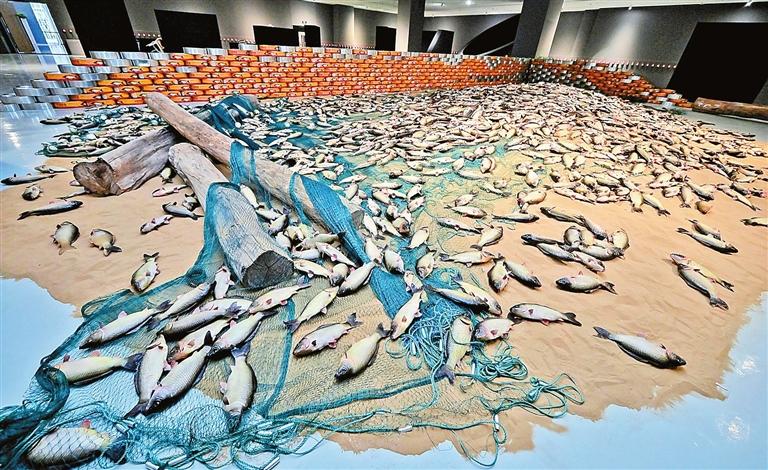
Debra Li debra_lidan@163.com “I DON’T repeat others; and I don’t repeat myself,” this is the motto of Chinese contemporary artist, documentary producer and poet Shen Shaomin. Through March 10, 2024, a retrospective show is presenting 10 series of installations by the artist at the Art Museum of Guangming Culture and Art Center, inviting viewers to explore his wild imagination and visions of the future while asking thought-provoking questions about art and our society. The exhibition’s title “A Herd of Zebras Crossing the Road” is a one-line poem by Shen, explained curator Feng Boyi. “The imagery of a herd of wild zebras wandering into a city and encountering a zebra crossing is witty and absurd at the same time,” Feng said. “While we humans have always come up with ingenious designs inspired by animals, the fast development of science, technology and economy has led to more urbanized areas and has encroached on the habitats of wildlife.” Shen, a self-taught artist born in 1957 in Northeast China’s Heilongjiang Province, is among the earliest Chinese artists to question the impact of technology. He first got in touch with art by painting posters in the 1970s, then taught himself making woodprints and won a national fine arts competition in 1984 for his work “Autumn,” which depicts a peaceful rural harvest scene. After making acquaintances with contemporary artists in the mid-1980s, Shen began to explore new methods and media for his creations. He then spent a decade in Australia, experiencing cultural shock and starting to create works to express his frustration about the conflicts between nations and between humanity and nature. One series at the exhibition focuses on the concept of time. In one piece, a long line of red retro-style alarm clocks are fixed on the wall and linked by black electric lines, each going at a different pace and pointing at different times, creating a chaotic symphony of mechanical sounds. The installation is meant to be a metaphor for the paradoxical subjectivity and objectivity of time. While time elapses at the same pace for everyone, every person feels differently about time at different moments of their lives. Deconstructing and then reconstructing classical works is a common method adopted by contemporary artists. The defamiliarization effect often gets the audience to have second thoughts about what they would otherwise take for granted. In Shen’s “Fraudulent Scheme of Rose,” a piece of surrealist sculpture, a life-size Joseph Beuys stands with a rose in his hand, an “animal carcass” lying at his foot. While Beuys, who has had a huge influence on Chinese contemporary artists, often used roses and animals in his behavior art works to express his love for peace and respect for nature, Shen points out with this sculpture the “performance” nature of Beuy’s art, as the latter exploited animals for his art creation. “The rose is a symbol of romance, and here it stands for a sugarcoated lie that the audiences readily believe without a pinch of salt,” Feng explained. In another piece of the series, a life-size “Marcel Duchamp” sits with a smoking pipe in one hand in front of a transparent desk, ready to begin a game of mahjong. Modeled on a 1943 photo where the artist was involved in a chess game in New York City, Shen’s installation replaces mahjong for chess, and puts the proud artist in a helpless situation. While Duchamp insisted that art should be driven by ideas above all, and often treated traditional means of art creation with irony and satire, Shen meant his sculpture to be a piece of mockery of the artist. For Duchamp, creativity is a random game ungoverned by rules; now he himself is in thrown into such an absurd game. While artists like Duchamp pursue abstract ideas and refuse to be easily interpreted by the public, Shen wants his installations to reach out to the public and involve the viewers in interactions. A piece of sculpture set at the plaza in front of the art center is an enlarged image of a pair of lined ear buds, reminiscent of the time when wireless ear buds were yet to become prevalent. Another piece inside the exhibition hall converted a piano into a piece of weird machinery. As the viewer strikes on each different key, a steel measuring tape will spring out from the back of the piano. The work is aptly named “Distance of Sound.” Another striking piece titled “Chinese Carp” presents 2,000 silicon carps in a giant green net. Next to the net are piles of “canned food made of carp.” While carp is a symbol of good luck in Chinese culture, the fish also helps improve the water quality in its habitat. Shen meant his creation as a criticism for humans’ overexploitation of nature and other species, Feng said. A seminar on contemporary Chinese art was held at the venue Nov. 29, when the exhibition opened. On Dec. 9, the Guangming Culture and Art Center will organize a forum titled “AI Create,” discussing AI trends and their implications for art and technological development. With Shen being appointed as a cultural consultant of Guangming District, the exhibition is a highlight of an ongoing public art festival in the district. | 
